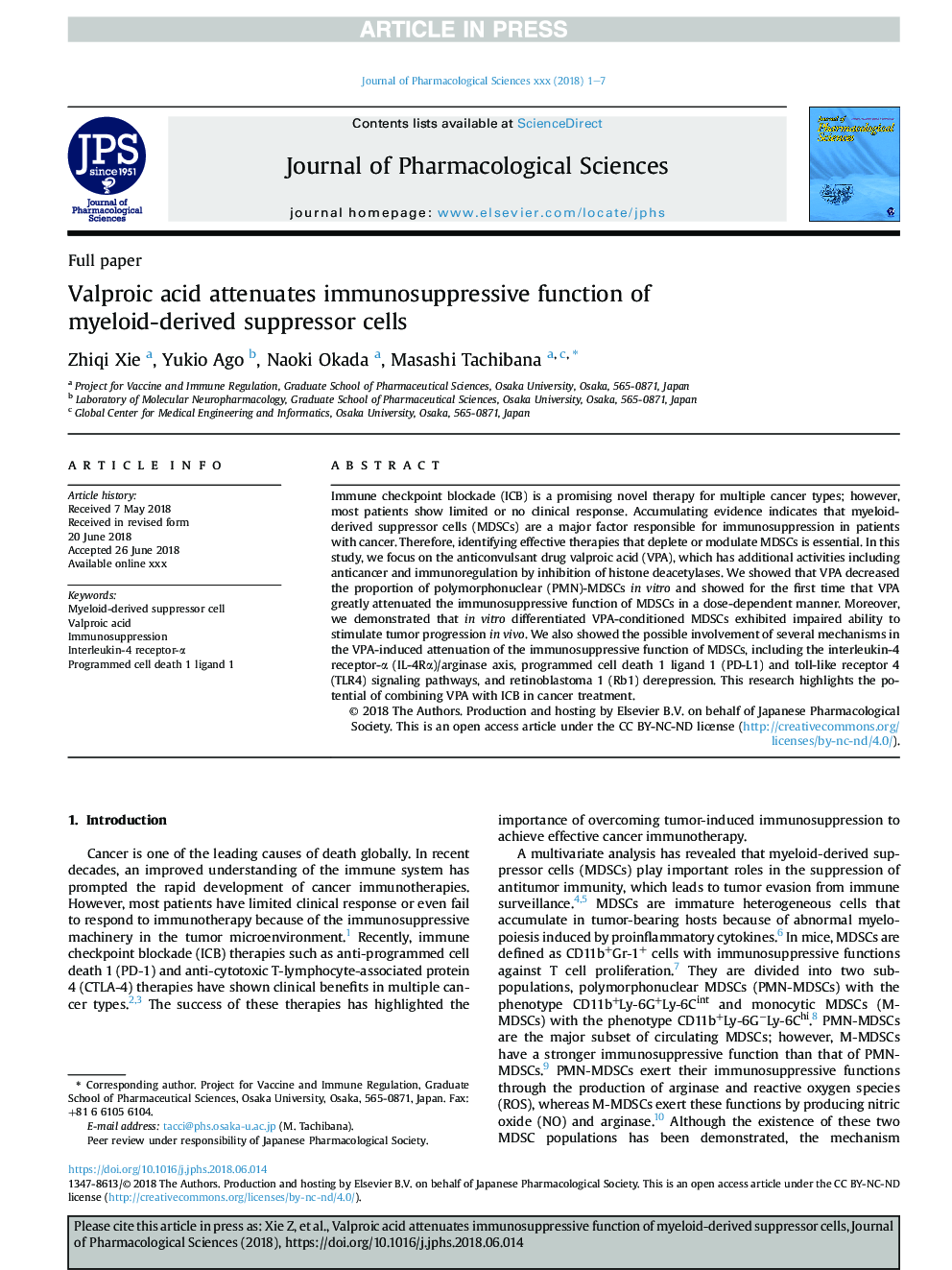| Article ID | Journal | Published Year | Pages | File Type |
|---|---|---|---|---|
| 10158462 | Journal of Pharmacological Sciences | 2018 | 7 Pages |
Abstract
Immune checkpoint blockade (ICB) is a promising novel therapy for multiple cancer types; however, most patients show limited or no clinical response. Accumulating evidence indicates that myeloid-derived suppressor cells (MDSCs) are a major factor responsible for immunosuppression in patients with cancer. Therefore, identifying effective therapies that deplete or modulate MDSCs is essential. In this study, we focus on the anticonvulsant drug valproic acid (VPA), which has additional activities including anticancer and immunoregulation by inhibition of histone deacetylases. We showed that VPA decreased the proportion of polymorphonuclear (PMN)-MDSCs in vitro and showed for the first time that VPA greatly attenuated the immunosuppressive function of MDSCs in a dose-dependent manner. Moreover, we demonstrated that in vitro differentiated VPA-conditioned MDSCs exhibited impaired ability to stimulate tumor progression in vivo. We also showed the possible involvement of several mechanisms in the VPA-induced attenuation of the immunosuppressive function of MDSCs, including the interleukin-4 receptor-α (IL-4Rα)/arginase axis, programmed cell death 1 ligand 1 (PD-L1) and toll-like receptor 4 (TLR4) signaling pathways, and retinoblastoma 1 (Rb1) derepression. This research highlights the potential of combining VPA with ICB in cancer treatment.
Keywords
Related Topics
Health Sciences
Pharmacology, Toxicology and Pharmaceutical Science
Pharmacology
Authors
Zhiqi Xie, Yukio Ago, Naoki Okada, Masashi Tachibana,
